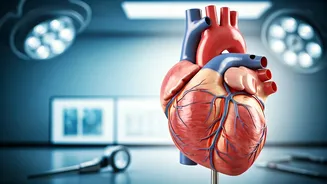Diet and Nutrition
Nourishing your body with a heart-healthy diet forms the bedrock of cardiovascular well-being. A diet abundant in fruits, vegetables, whole grains, and
lean proteins is essential. These foods provide vital nutrients, antioxidants, and fiber, contributing to lower cholesterol levels and reduced inflammation. Limiting saturated and trans fats, found in processed foods and red meats, is crucial, as they can elevate LDL (bad) cholesterol. Opting for healthy fats like those in avocados, nuts, and olive oil can provide benefits. Monitoring sodium intake is also paramount, as excessive amounts can lead to high blood pressure, placing undue stress on the heart. Focusing on portion control and mindful eating habits further aids in maintaining a healthy weight, indirectly benefiting heart health. Remember to stay hydrated by drinking enough water.
Regular Physical Activity
Regular exercise is a cornerstone of heart health, offering a multitude of benefits. Aim for at least 150 minutes of moderate-intensity aerobic exercise or 75 minutes of vigorous-intensity exercise each week. Activities such as brisk walking, jogging, cycling, and swimming can strengthen the heart muscle, improve blood circulation, and help manage weight. Engaging in activities that you enjoy makes it easier to maintain a consistent exercise routine. Strength training exercises, performed at least two days a week, also play a vital role in enhancing cardiovascular health by building muscle mass, boosting metabolism, and controlling blood sugar. Always consult with a healthcare professional before starting any new exercise program, particularly if you have existing health conditions. Consistency is key, so make exercise a regular part of your daily routine.
Manage Stress Effectively
Stress can significantly impact heart health; therefore, effective stress management is essential. Chronic stress elevates blood pressure and increases the risk of heart disease. Implement various relaxation techniques to mitigate the effects of stress. Practices such as deep breathing exercises, meditation, yoga, and spending time in nature can help calm the mind and reduce stress hormones. Engaging in hobbies, spending quality time with loved ones, or pursuing activities you enjoy can also alleviate stress. Identifying and avoiding major stressors can further contribute to a more relaxed and heart-healthy lifestyle. Consider seeking professional help, such as therapy or counseling, if you struggle to manage stress independently. Prioritizing your mental health is as crucial as physical well-being.
Monitor Cholesterol Levels
Regularly monitoring cholesterol levels is critical in maintaining heart health. High levels of LDL (bad) cholesterol can lead to the buildup of plaque in the arteries, increasing the risk of heart disease. Get your cholesterol levels checked regularly through a blood test, especially if you have risk factors such as a family history of heart disease, smoking, or being overweight. If your cholesterol levels are elevated, discuss with your doctor about lifestyle modifications, such as dietary changes and increased physical activity. In some cases, medication may be necessary to effectively manage cholesterol. By proactively monitoring and addressing high cholesterol, you can significantly reduce your risk of cardiovascular complications and improve your heart health.
Limit Alcohol Consumption
Excessive alcohol consumption can negatively impact heart health, and moderation is key. Heavy drinking can increase blood pressure, contribute to weight gain, and raise the risk of heart failure and stroke. If you choose to drink alcohol, do so in moderation – up to one drink per day for women and up to two drinks per day for men. However, some individuals, such as those with certain medical conditions or taking specific medications, should avoid alcohol altogether. Consult with your healthcare provider about appropriate alcohol consumption levels based on your individual health profile. By limiting alcohol intake, you can support your heart's well-being and reduce the risk of alcohol-related cardiovascular issues. It’s important to prioritize your health.
Quit Smoking Immediately
Quitting smoking is one of the most significant steps you can take to improve your heart health. Smoking damages blood vessels, raises blood pressure, and increases the risk of heart disease, heart attack, and stroke. If you smoke, quitting is the single most impactful change you can make for your heart. Utilize resources like nicotine replacement therapy, support groups, or counseling to assist you in quitting. The benefits of quitting smoking are immediate and substantial. Within a short time after quitting, your blood pressure and heart rate will begin to normalize, reducing your risk of heart-related complications. The long-term benefits include a significantly reduced risk of developing heart disease and an improved overall quality of life. The sooner you quit, the greater the advantage to your health.













